The Winemaker’s Think Tank: Vol 25 – Why is my wine evaporating?
What’s the Winemaker’s Think Tank?
Every Thursday we will post about a few frequently asked questions that our winemaker has answered. If you have a winemaking question you would like to have answered, please email us at support@juicegrape.com and we will try to get into next week’s post. Cheers! 🙂
Why is my wine evaporating?
Just like water or any other liquid, with prolonged exposure to air, wine can evaporate. When aging wine in an enclosed container such as a tank, carboy, or demijohn, the container should have an airtight seal via an inflatable gasket or an airlock and bung. This will help prevent against oxidation and will reduce the amount of evaporation dramatically. If you still see some evaporation happening in one of these closed containers, evaluate your bungs and seals as they may not be working properly.
The main source of evaporation in winemaking is through barrel aging. Barrels are a porous environment that allows the wine to “breathe” over time. This “breathing” process is essentially evaporation. The wine is exposed to air through the porous staves and small portions of the wine evaporate into the atmosphere. This has positive effects on the wine as it creates a creamier mouthfeel, can reduce the perception of acidity, and imparts oak flavor. The barrel must be filled monthly with additional wine to reduce the head space and replace the evaporated product. This will prevent the wine in the barrel from oxidizing. While the breathing process may be a source of frustration, as you witness your wine evaporating into thin air, it will help you to create a fuller, heavier, more lush wine.
We hope this information helps with your winemaking. If you have any follow up questions or winemaking questions in general, please email us at support@juicegrape.com.
The Winemaker’s Think Tank: Vol 9 – How long will my wine last?
What’s the Winemaker’s Think Tank?
Every Thursday we will post about a few frequently asked questions that our winemaker has answered. If you have a winemaking question you would like to have answered, please email us at support@juicegrape.com and we will try to get into next week’s post. Cheers! 🙂
How long will my wine last?
All wine ages differently. Certain varietals benefit from aging, others are meant to be consumed quickly. Generally, the more tannic the wine, more it will benefit from aging. Other factors influence a wine’s potential to age as well. If the winemaker chooses not to add sulfites to the wine (not recommended), the wine will not age as well and should be consumed within a year. If the proper level of sulfites are added, the wine stored at an appropriate temperature (55-62 degrees Farenheit), and not exposed to light, it should be able to age for many years. Some varietals that benefit from aging are Chardonnay, Cabernet Sauvignon, and Malbec. Some varietals that do not necessarily benefit from aging are Gewurztraminer, Sauvignon Blanc, and Cayuga.
We hope this information helps with your winemaking. If you have any follow up questions or winemaking questions in general, please email us at support@juicegrape.com.
Are you considering buying a gift? Let us help…
Are you considering buying a gift? Let us help…
Musto Wine Grape Company, LLC. has gifts for those starting out in winemaking, those who are experienced winemakers, or those who simply love wine or have a special winemaker in their lives.
So, what sort of person are you buying for?
Is this person interested in making wine for the first time or relatively new to winemaking?
Those interested in making wine may want to start out with some of the following:
Winemaking Equipment kits come with many of the basic and reusable items that are essential for making a basic batch of wine. Kits can be purchased pre-packaged or you can work with a Musto sales rep to enhance the kit items.
Winemaking Ingredient Kits exist for every budget and contain the ingredients needed to ferment and finish wine for bottling and enjoyment. There are kits available for all tastes.
While there are many different pieces of equipment that can be purchased for winemaking, few are as essential to crafting consistently good wine as are these items…
Hydrometer
Acid Tiration Kits (we recommend our own Pro Acid Kit!)
pH meters
Professional Books on Winemaking
A Professional Winemaker Led Class At Musto Wine Grape Company, LLC at our Hartford, CT location.
Perhaps the person you are buying for falls into the “Experienced Winemaker” category?
If your winemaker is an “Experienced Winemaker” he or she may already have those items mentioned for the those who might just be getting started in winemaking. For those who do, you may want to consider some of the following items, big and small.
New Wine Barrels
Stainless Steel Variable Capacity Tanks
Chemical Analysis Meters
Wine Bottles
OR…Maybe the person you are buying for simply loves wine and/or a special winemaker?
Gift Certificates…The Perfect Gift!
There may be no better gift option than the gift certificate. It allows the recipient to apply the value of the certificate to any item that they wish to purchase and at a time they are ready to do so. Our gift certificates come with a gift certificate holder and may be used for either online or in-store purchases. Click here to purchase a gift certificate in a convenient denomination.
Also, we are constantly running New and Special Deals on All of Our Products –> Check out our Shopping Page for more Information and Coupons!
What to do while you wait for your wine to age?
If you are like us then you get impatient waiting for your wine to finish the aging process. Here are few things to keep you busy while you wait for your vintage to be ready.
1. Drink Last Year’s Wine – Yummy.
2. Make a Wine Kit – You can have wine on the table in 3-4 weeks! Personally we are loving the Castel del Papa and the Green Apple Riesling.
3. Search Out a New Wine Club or Two – These new wines can inspire a new blend or variety to be made next year.
4. Design Your Own Wine Label – Your wine label should represent you. Musto Wine Grape offers custom label design as well as stock labels to help you add your own flair to your wine label.
5. Drink Local – Check out your local wineries and compare wine notes with other local winemakers. Connecticut has a great Wine Trail you can check out the next time you stop by to pick up a few things.
6. Visit California Wine Country – Why not take a trip and see where your wine grapes came from? Contact Christina at cmusto@juicegrape.com for more information on where to taste, stay, and play in California Wine Country.
7. Clean and Organize Your Wine Cellar– Think of it as “spring” cleaning. I’m sure your house mates would be happy to see it organized.
8. Stock Up on Winemaking Products for Next Year – There are a lot of sales going on during the Holiday Season. Take advantage of them and get ahead for next year!
9. Plan for your next Winemaking Project – Southern Hemisphere Grapes – Grapes from Chile and South Africa will arrive as early as the beginning of May. The California grapes will arrive in August.
10. Throw a Blending Party – Invite your friends over and create some new and interesting blends.
Malbec, Merlot, Syrah, Cabernet Sauvignon, & Carmenere Arrive from Chile
Hello Winemakers!
Below are the Brix numbers from the Red Grapes that have arrived so far from Chile. We received Malbec, Merlot, Syrah, Cabernet Sauvignon, and Carmenere. We look forward to you all of you picking up and enjoying the wine grapes of Chile! It looks like it’s going to be a great vintage!
Malbec: 23.5
Merlot: 23.0
Syrah: 23.0
Cabernet Sauvignon: 24.0
Carmenere: 26.0
We are awaiting several more loads containing Cabernet Sauvignon, Malbec, Carmenere, Merlot, Cabernet Franc, Petite Verdot, and Syrah. We will have arrival dates for these loads soon.
*Please keep in mind these numbers are only sample of what arrived from Chile. Please make sure to take your own Brix readings when you receive your grapes for the best possible fermentation outcome.









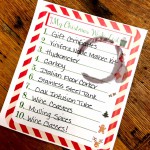
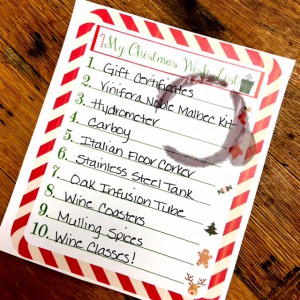


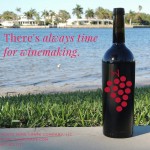
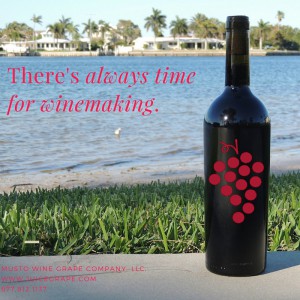
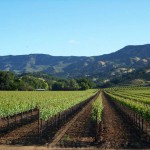
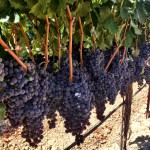
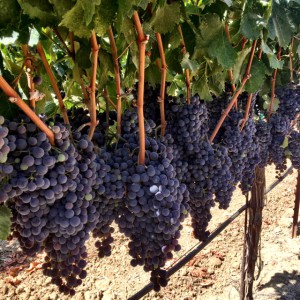
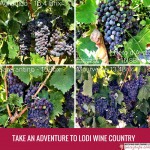
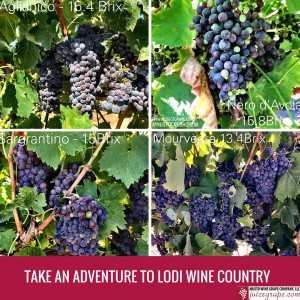
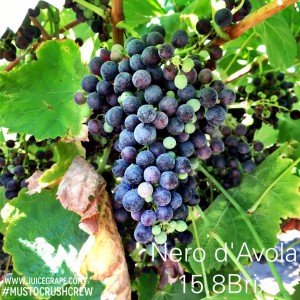
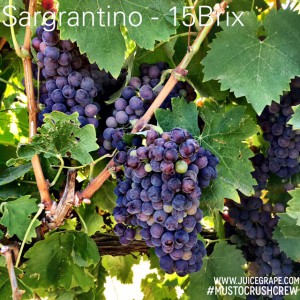
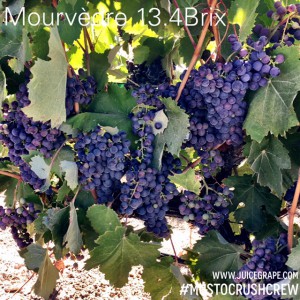
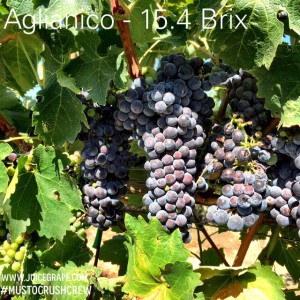
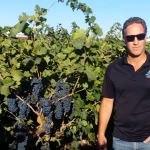
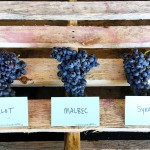
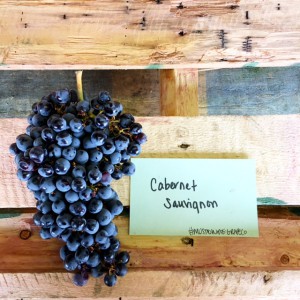
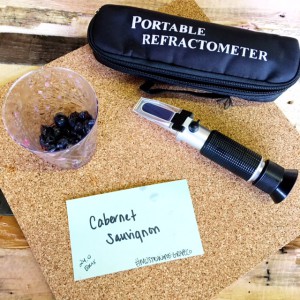
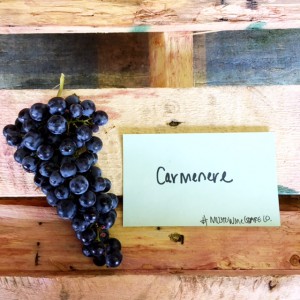
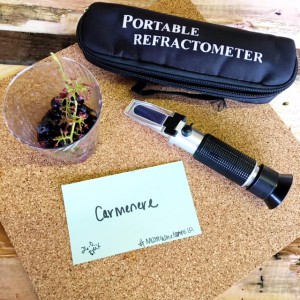
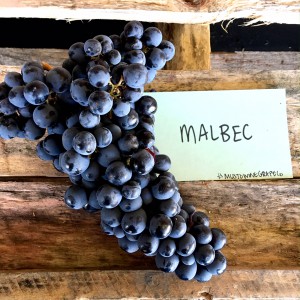
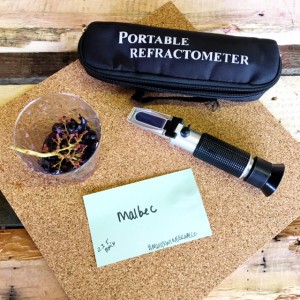
Recent Comments